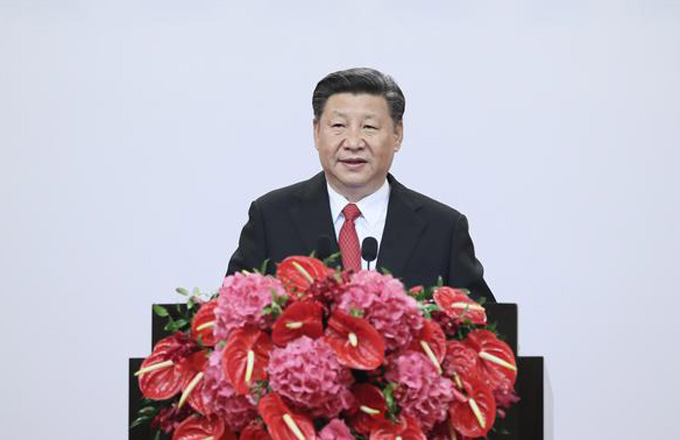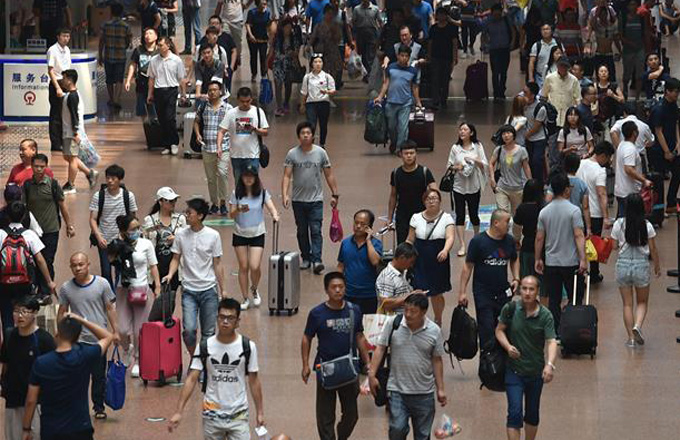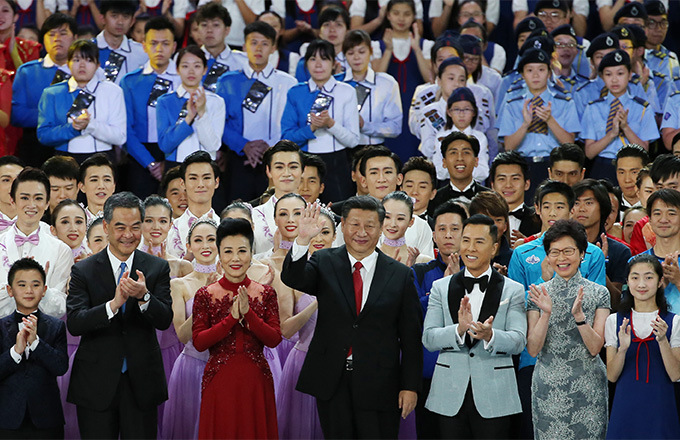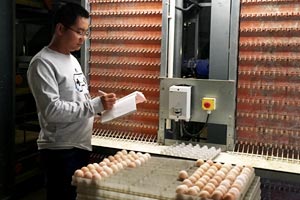Social, emotional learning helps children handle bullying
BEIJING - Sharing their experiences of being bullied, several children shed tears.
"He broke my pencil without any reason, punched me, and gave me a bloody nose after I asked him to pay for my pencil," a fourth-grader, recalls in front of his classmates, his body trembling.
The little boy takes off glasses, briefly wipes his tears and bursts out crying. His teacher walks over and hugs him without saying a word.
The class at Sanjiang Ethnic Experimental School in Sanjiang Dong Autonomous County, south China's Guangxi Zhuang Autonomous Region, is called social and emotional learning (SEL). It is a cooperation project between the Ministry of Education and UNICEF.
SEL is about helping students develop skills such as self-recognition and confidence, understanding and managing emotions, and maintaining positive relationships with others. "Say 'no' to bullying" is one of the topics.
During the course, Zhou Lihong, the teacher, tells a story of an imaginative but introverted girl's long-term bullying and asks students for ways they would help the girl.
Some suggest making friends with her, some advise her to turn to teachers or parents for help, someone suggests "an eye for an eye."
"Bullying is constant and intentional, initiated by the stronger against the vulnerable. We should learn to protect ourselves, and meanwhile, never bully others," Zhou tells the children.
Educationalist Guo Xiaoping of UNICEF says since launch of the SEL project in 2013, the number of participating schools has increased to over 500.
These schools are mainly in less-developed middle and western parts of the country, such as Guangxi's Sanjiang County, Panxian County in Yunnan Province and Zhongxian County in Chongqing Municipality, said Guo.
"With the support from local education authorities and experts, some schools that are not included into the pilot have also joined in," she said.
Wu Xinyun, head of the primary section of Sanjiang Ethnic Experimental School, says students receive a SEL every two weeks, using textbooks provided by the project.
"We have found there is less physical conflict among the kids," she said. Each class has around 60 students, much more than the advised national maximum of 45.
"Physical contact is very frequent in the classroom, and often led to fights in the past. SEL helps students understand each other, so brawls are much more infrequent," she said.
Many countries, such as the United States and Australia, have SEL in their standard curriculums, and it is helpful for students' academic progress, according to Guo.
She says a study of U.S. primary and high schools and kindergartens in 2011 found SEL participants did 11-percentage points better than control groups.
Wei Jiaqi, 12, has drawn a picture of a classmate holding an umbrella for her in rain. She names the drawing, "Thanks for caring about me."
"I was upset as my mom had scolded me that day. It was my classmate who kept me company," she says. "I changed my girl pal into a boy, because drawing a boy is easier," she says with a smile, adding they like the SEL courses very much.
Li Fuzhuo, head of teacher education at Guangxi normal university, said SEL is meant to create an atmosphere in which students feel, experience, think and acquire the related skills. Competent teachers are vital.
To address this issue, the Ministry of Education and UNICEF often organize training and demonstration courses for school heads and teachers.
The project also encourages parents to participate. The team is compiling articles about SEL to be released via the UNICEF WeChat account.
In this way, parents, especially migrant workers who have left their children behind, will be able to join in the SEL project.
Huang Guizhen, an official with the Ministry of Education, believes SEL not only improves teaching competence, but enables vulnerable groups, like left-behind children, to feel more care and love from school and the family.
"We want to expand the project to more schools, so that more children benefit from it," she said.





















